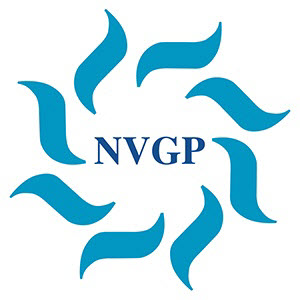Therapeutic Factors that Promote Recovery in High& 8209;risk Adolescents Intensive Group Psychotherapeutic MBT Programme
Hauber, K., Boon, A., & Vermeiren, R. (2019). Therapeutic factors that promote recovery in high‑risk adolescents intensive group psychotherapeutic MBT programme. Child Adolescent Psychiatry and Mental Health, 13(2)
https://doi.org/10.1186/s13034-019-0263-6
Verslaggever Willem de Haas
Abstract
Background: The aim of this study was to investigate whether therapeutic factors as identified by Yalom and potential additional therapeutic factors could be found in the qualitative individual reports of high-risk adolescents with personality disorders at the end of an intensive group psychotherapeutic MBT programme and whether the therapeutic factors were related to therapy outcomes.
Methods: At the end of treatment, 70 adolescents were asked to write a farewell letter. Content analysis of the letters was performed by two independent raters, using the 12 therapeutic factors of Yalom and potential additional therapeutic factors as coding categories. The factors were related to outcome, operationalized as a decrease in psychological symptoms as measured with the Symptom Check List 90 (SCL-90).
Results: All therapeutic factors of Yalom and four new factors were identified in the letters, ranging from 1 to 97%. The factors of ‘cohesion’ (97%), ‘interpersonal learning output’ (94%), ‘guidance’ (98%) and ‘identification’ (94%) were found in most letters. By contrast, ‘universality’ (1%), ‘family re-enactment’ (3%) and ‘instillation of hope’ (1%) were found in very few letters.The factors ‘interpersonal learning input’, ‘self-esteem’ and ‘turning point’ were significantly associated with therapeutic recovery.
Conclusions: Large presence differences were encountered in therapeutic factors associated with resilience processes and the resolution of psychological distress. Although a relationship was found between certain factors and change in symptoms, it was unclear whether the factors had led to such change. Further research seems important for treatment in general and for the personalization of treatment.
Keywords: Ego narratives, Group therapy, Adolescents, MBT
Wat betekent dit voor de groepstherapie?
Dit serieuze maar bescheiden onderzoek is om de volgende redenen belangrijk voor de groepstherapie:
- Het doel van het onderzoek was om te zien of de therapeutische factoren in groepstherapie volgens Yalom (2005)* zijn terug te vinden in de evaluatie van intensieve deeltijd-klinische groepsbehandeling van jong-volwassenen met forse persoonlijkheidspathologie
- Voor de evaluatie wordt een originele operationalisering gebruikt, namelijk de spontane afscheidsbrieven van de deelnemers. Deze brieven worden systematisch door 2 onafhankelijke beoordelaars gescreend op de aanwezigheid van de therapeutische factoren
- Alle 12 factoren van Yalom worden teruggevonden, maar 4 springen eruit: cohesie, interpersoonlijk leren-output, begeleiding en identificatie. Mogelijk zijn het de voorwaardelijke factoren voor therapeutische verandering
- Er worden nog 4 aanvullende factoren gevonden: zelf-vertrouwen, turning-point, veerkracht en vertrouwen
- Er word een significant verband gevonden tussen therapeutisch resultaat (afname van de klachten volgens de SCL-90) en deze drie factoren: interpersonal learning output, zelf-vertrouwen en turning point.
*Yalom, I. & Leszcz, M. (2005). The theory and practice of group psychotherapy
| Relevantie voor richtlijnen | O O O O O |
| Relevantie voor onderzoek | O O O O O |
| Relevantie voor groepsbehandeling | O O O O O |
| Relevantie voor teamcoaching | O O O O O |
| Relevantie voor groepsdynamicaopleiding | O O O O O |
| Relevantie voor groepstherapieopleiding | O O O O O |
| Relevantie voor KP opleiding of Psychiatrieopleiding | O O O O O |
